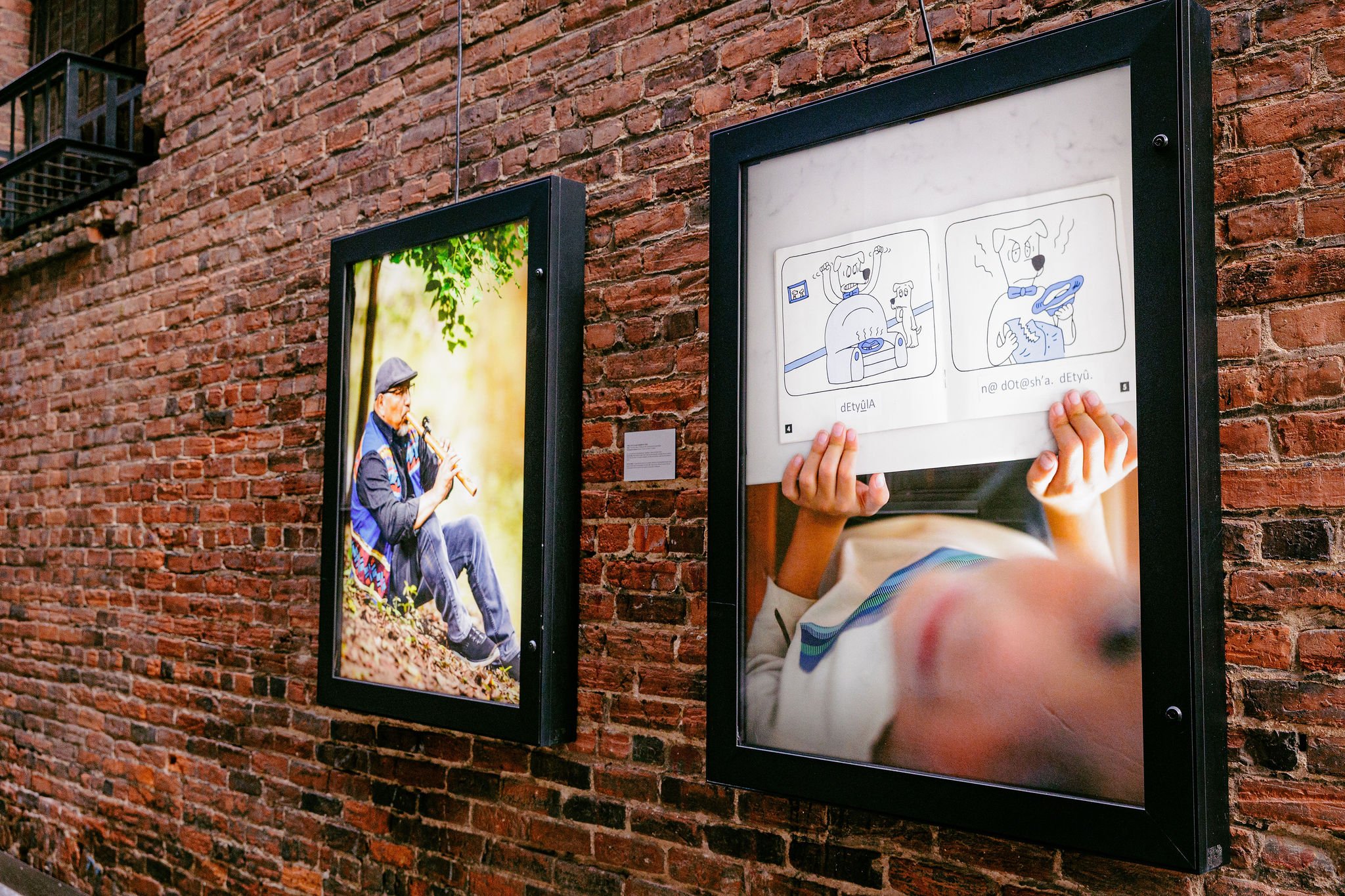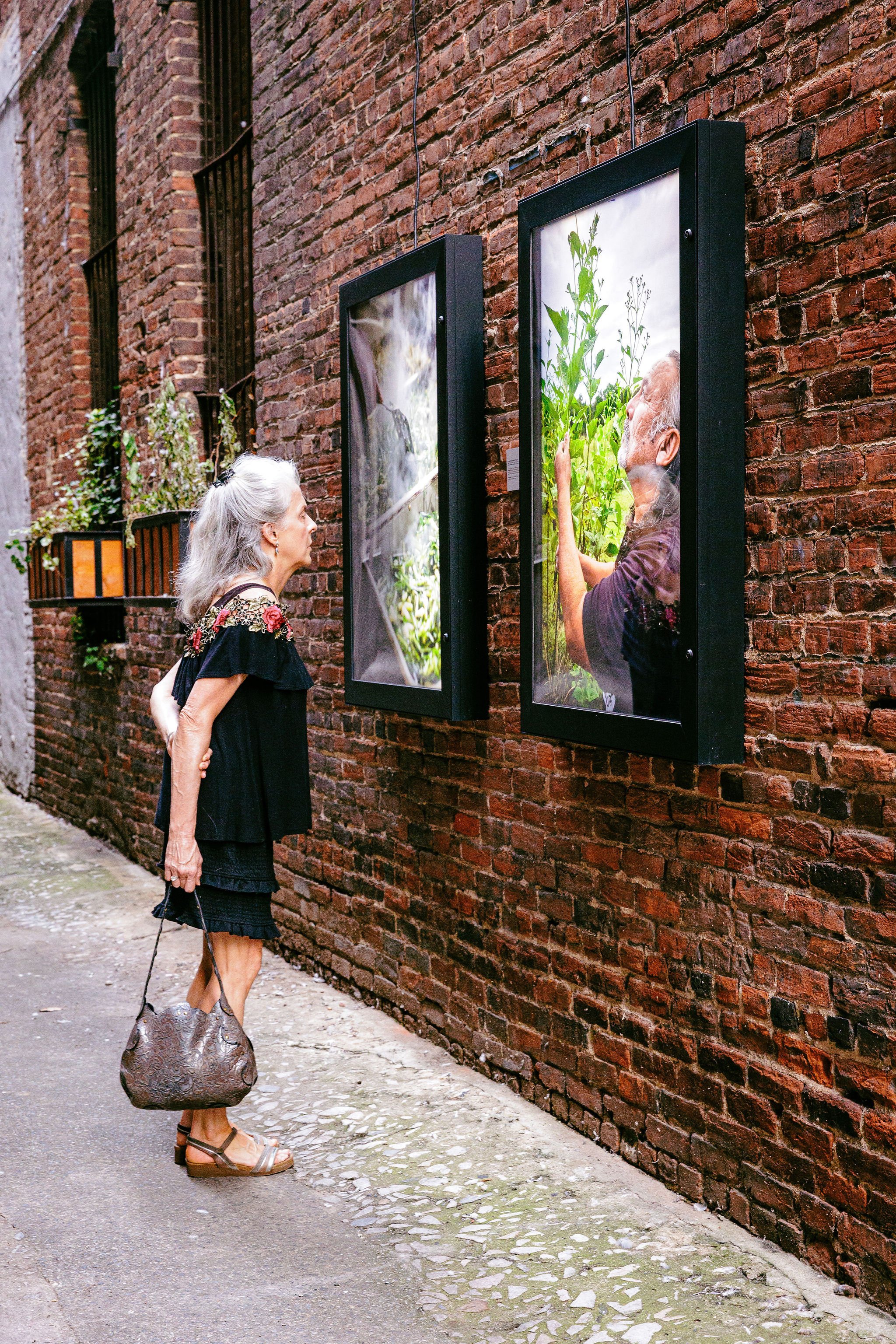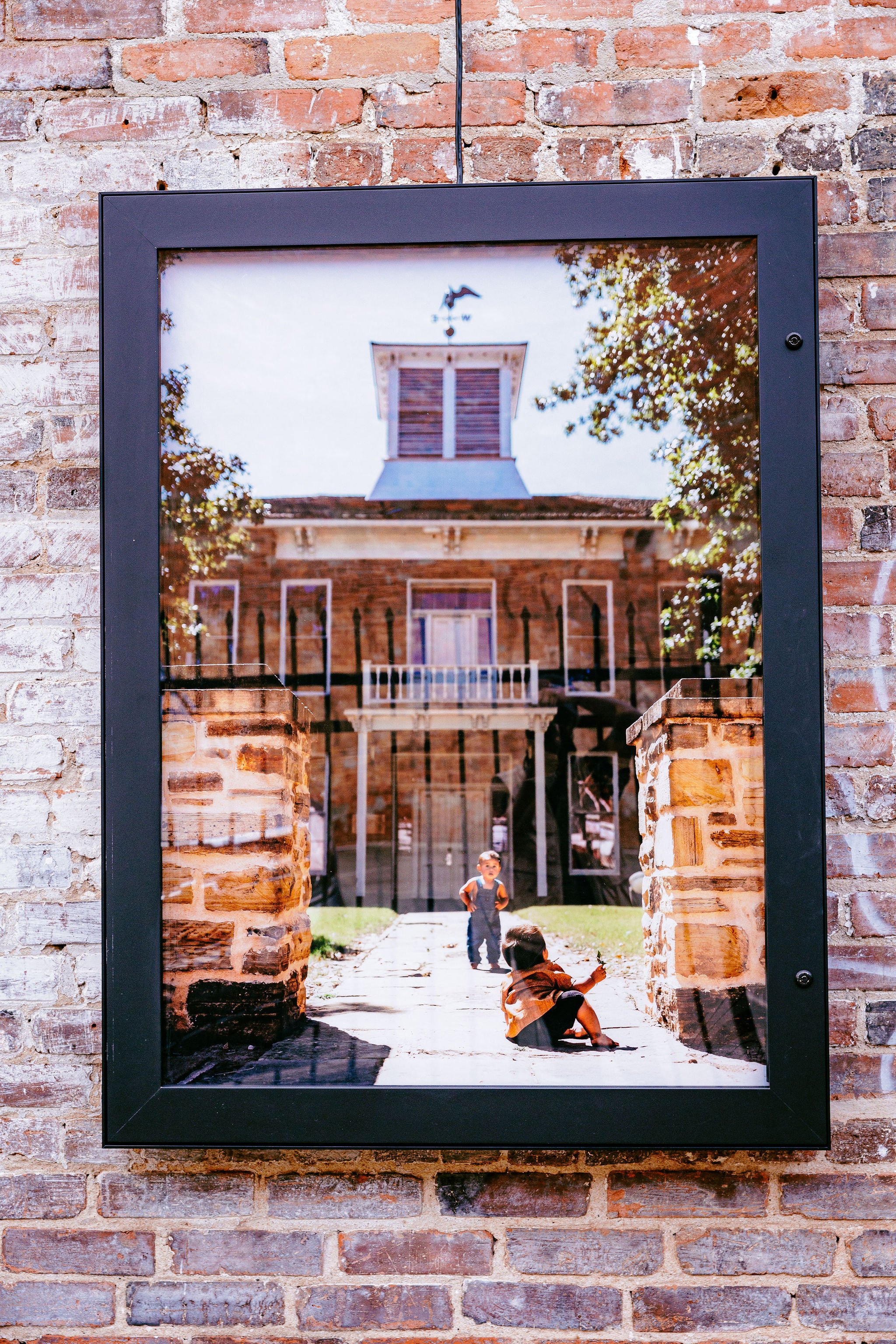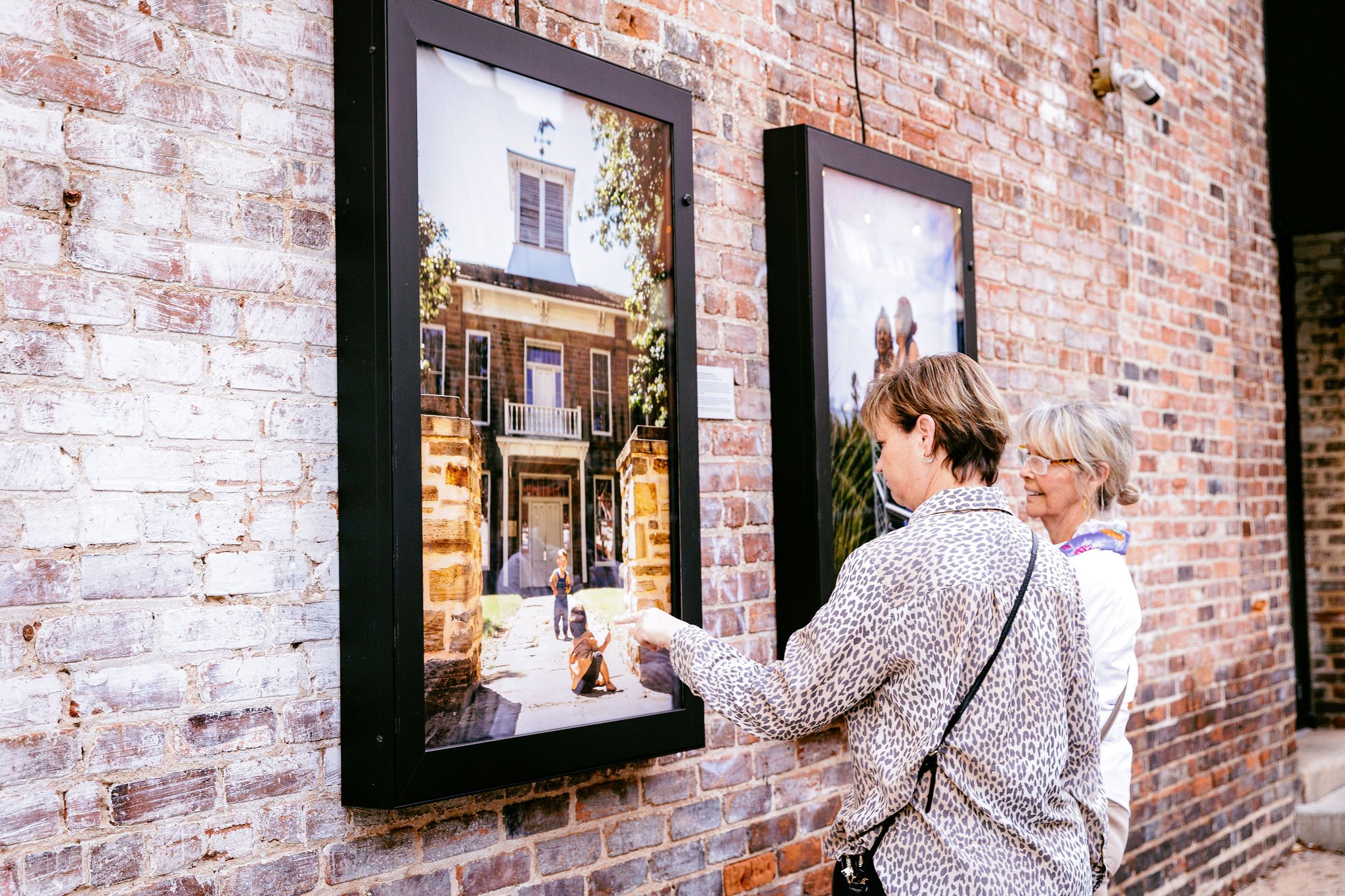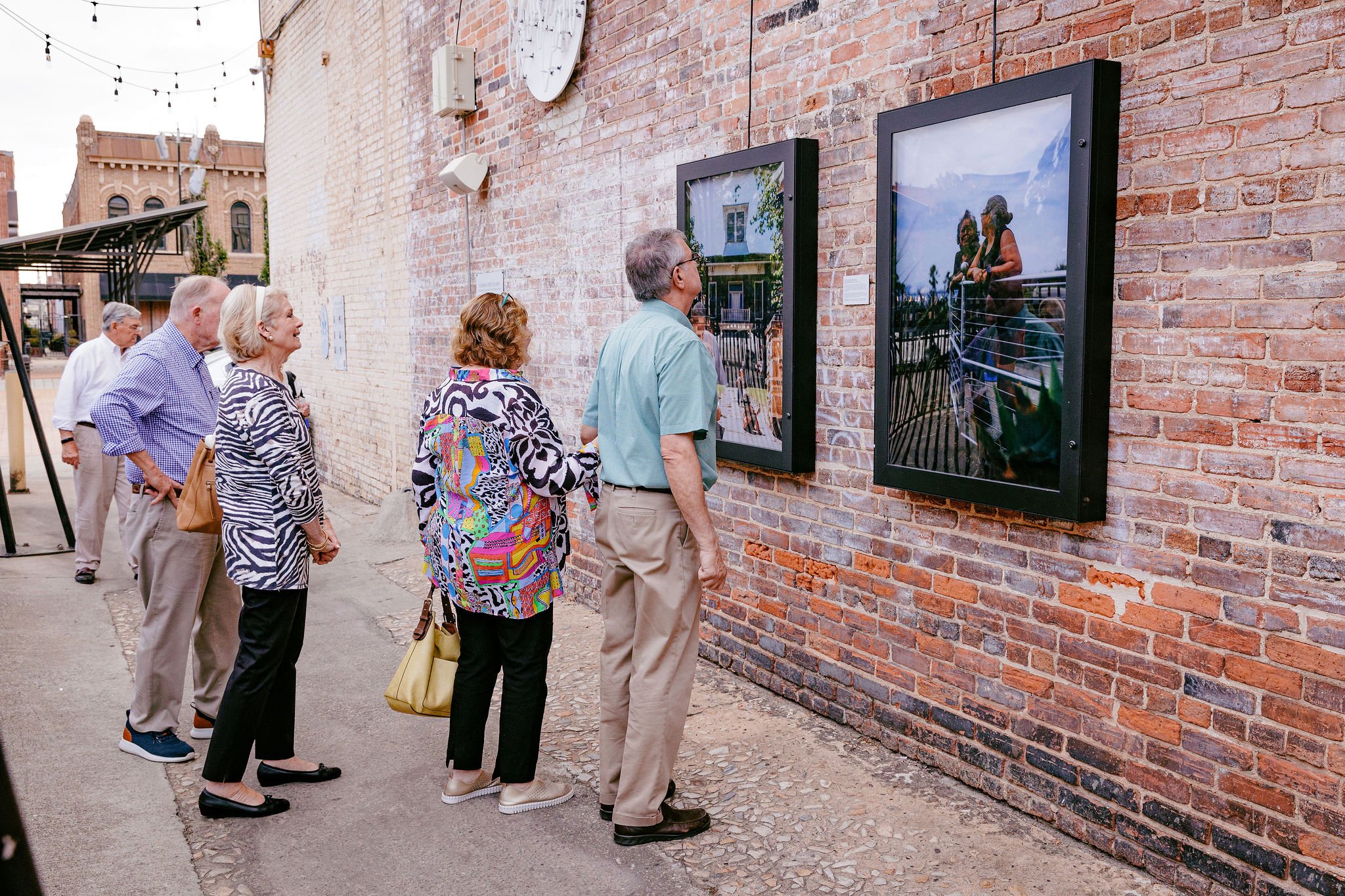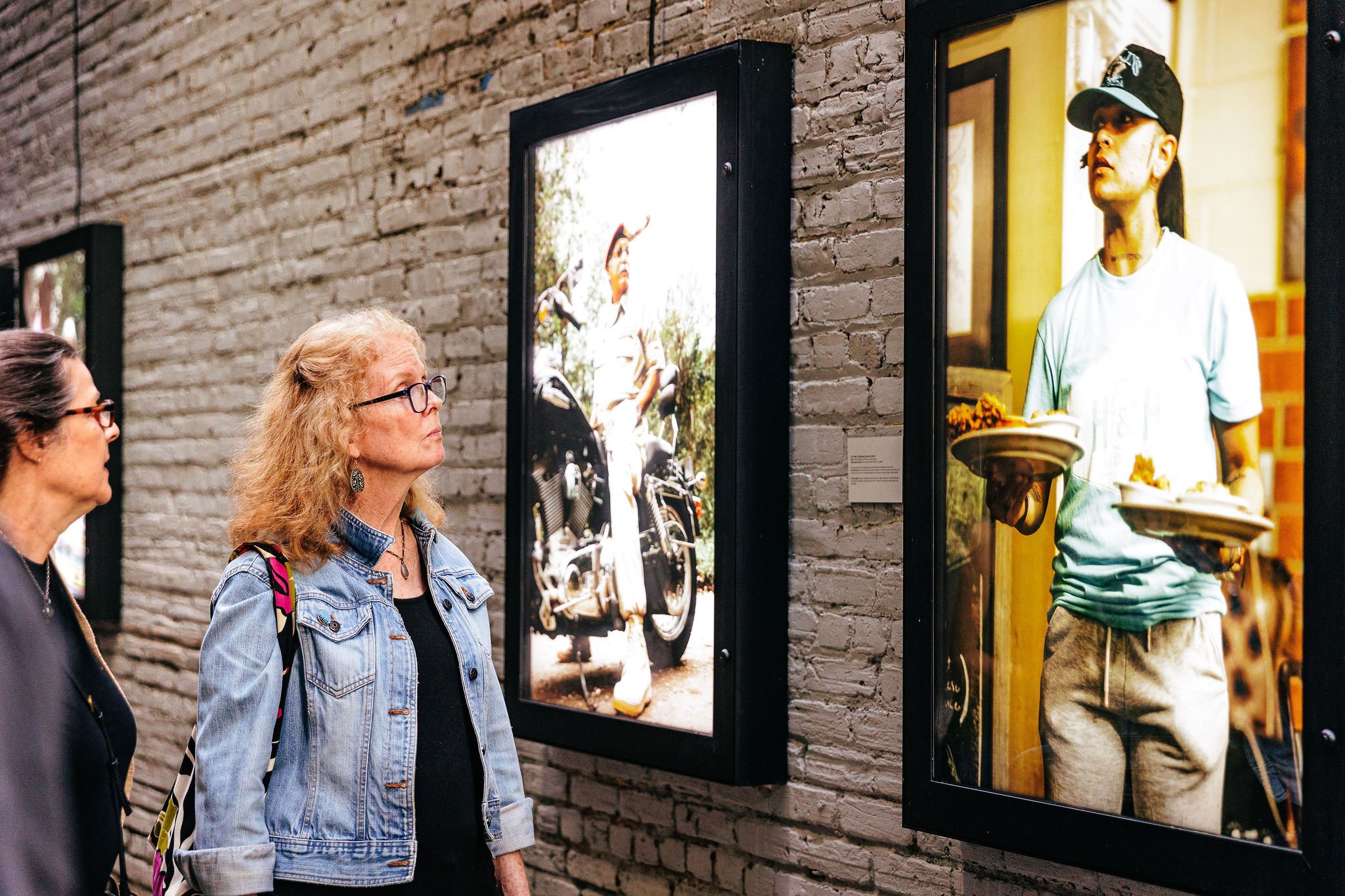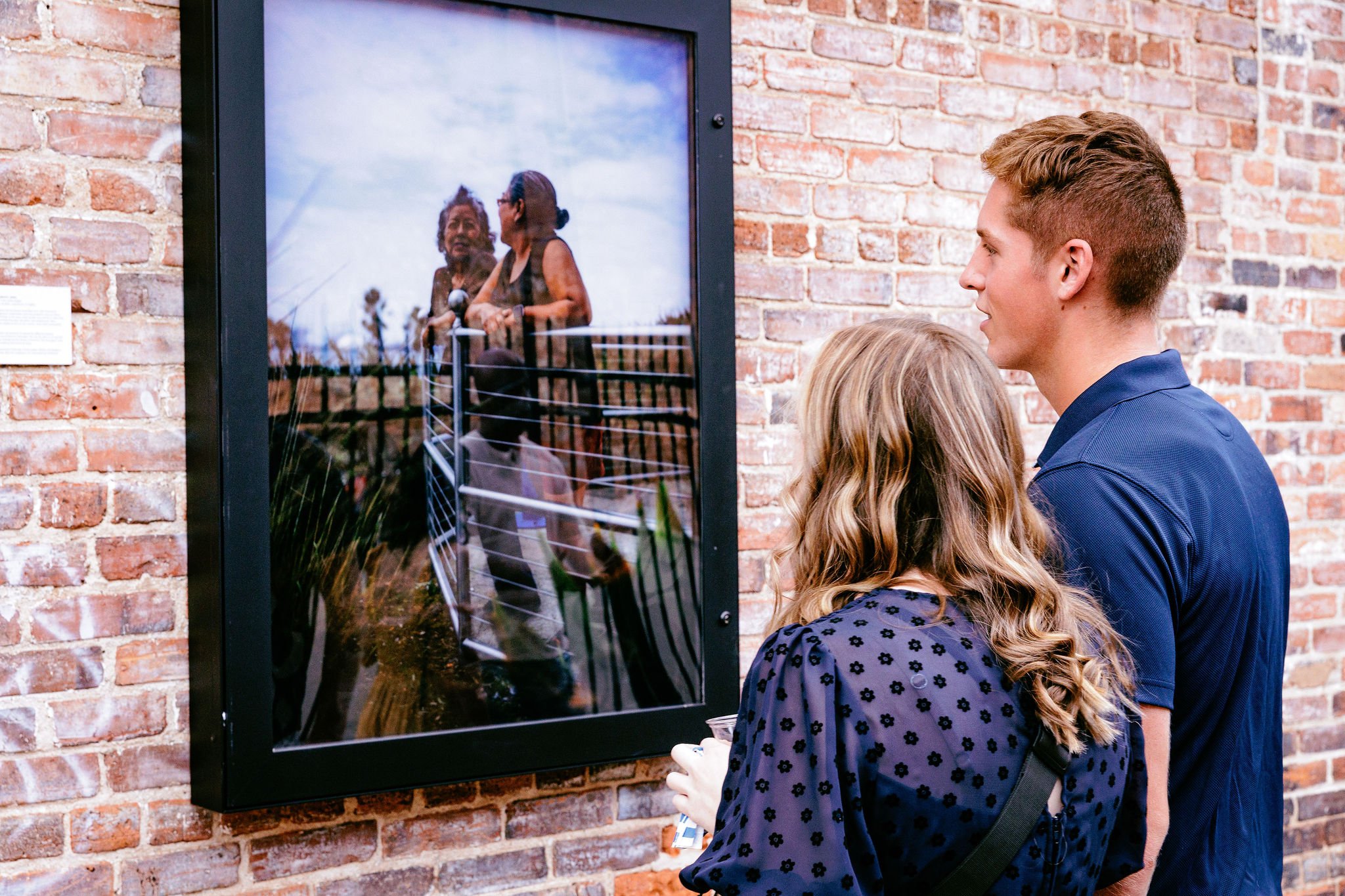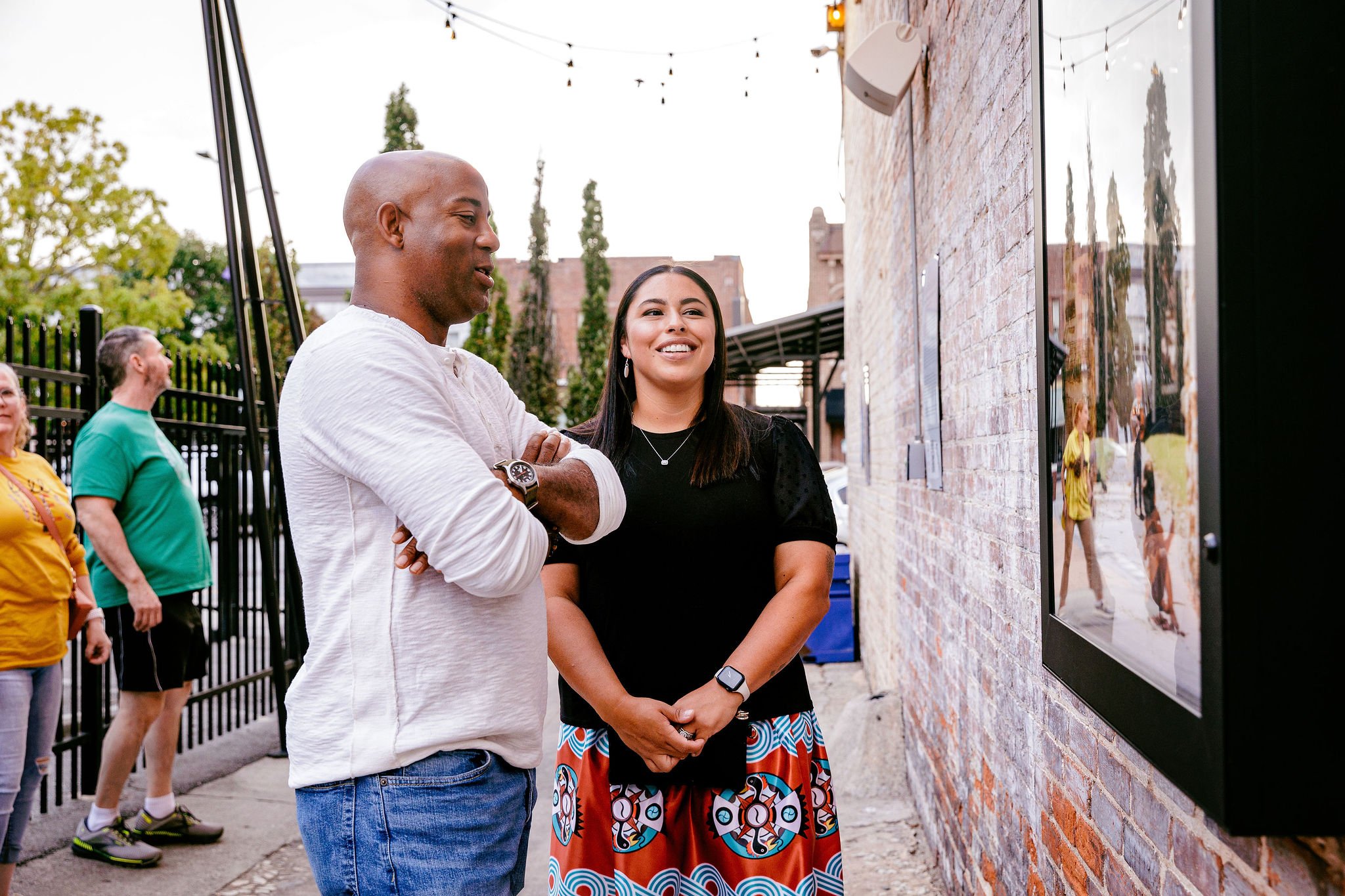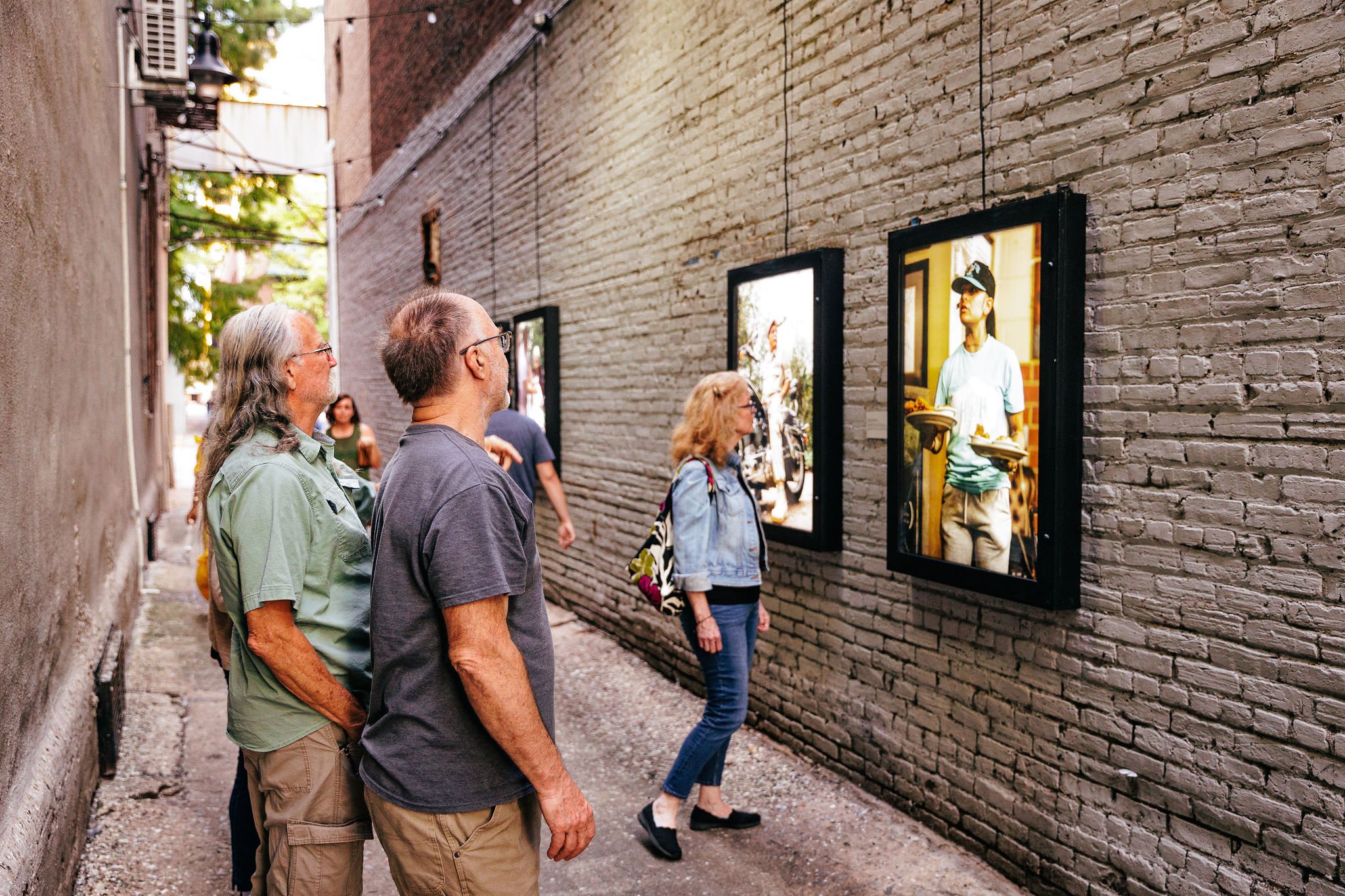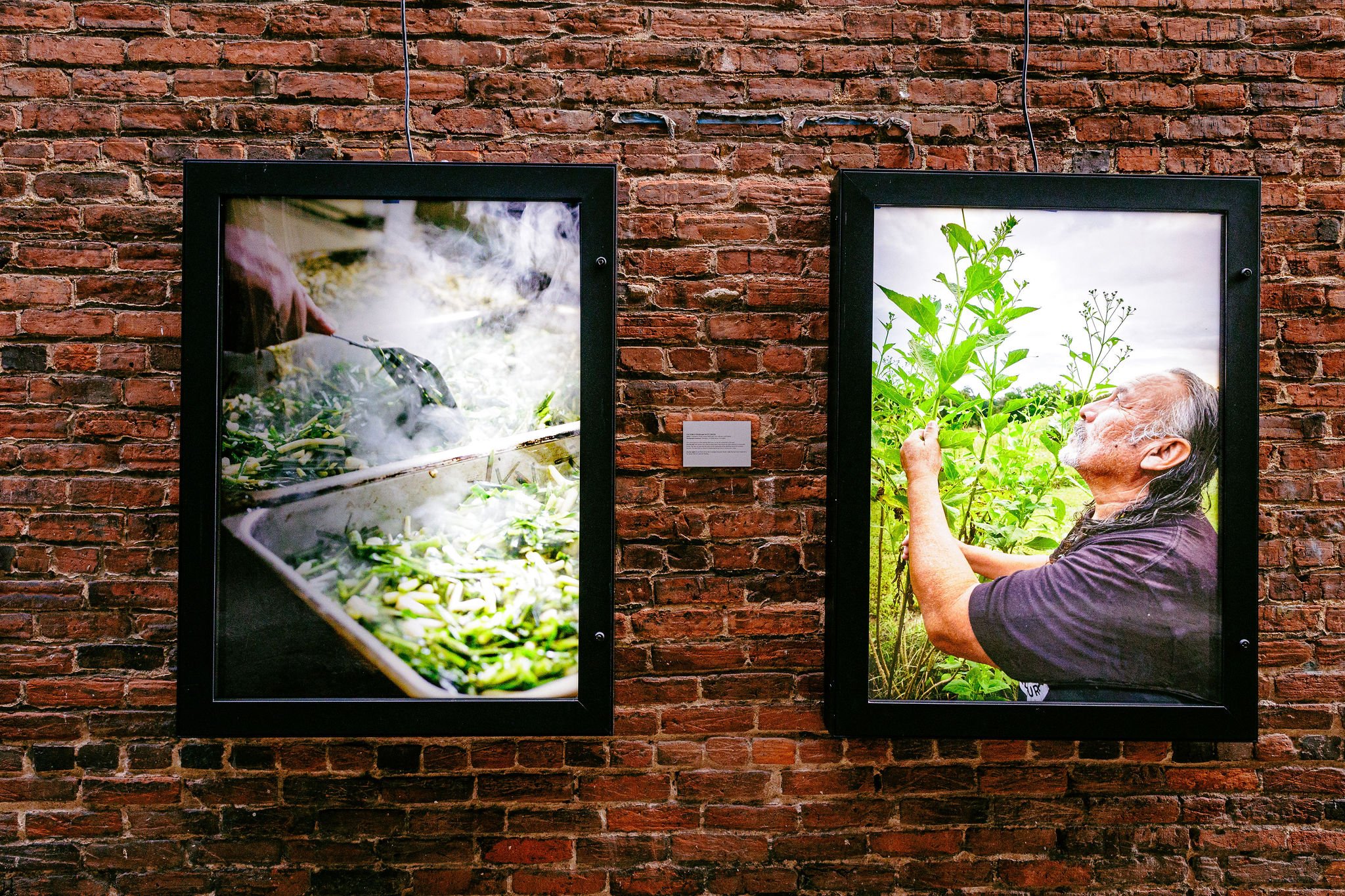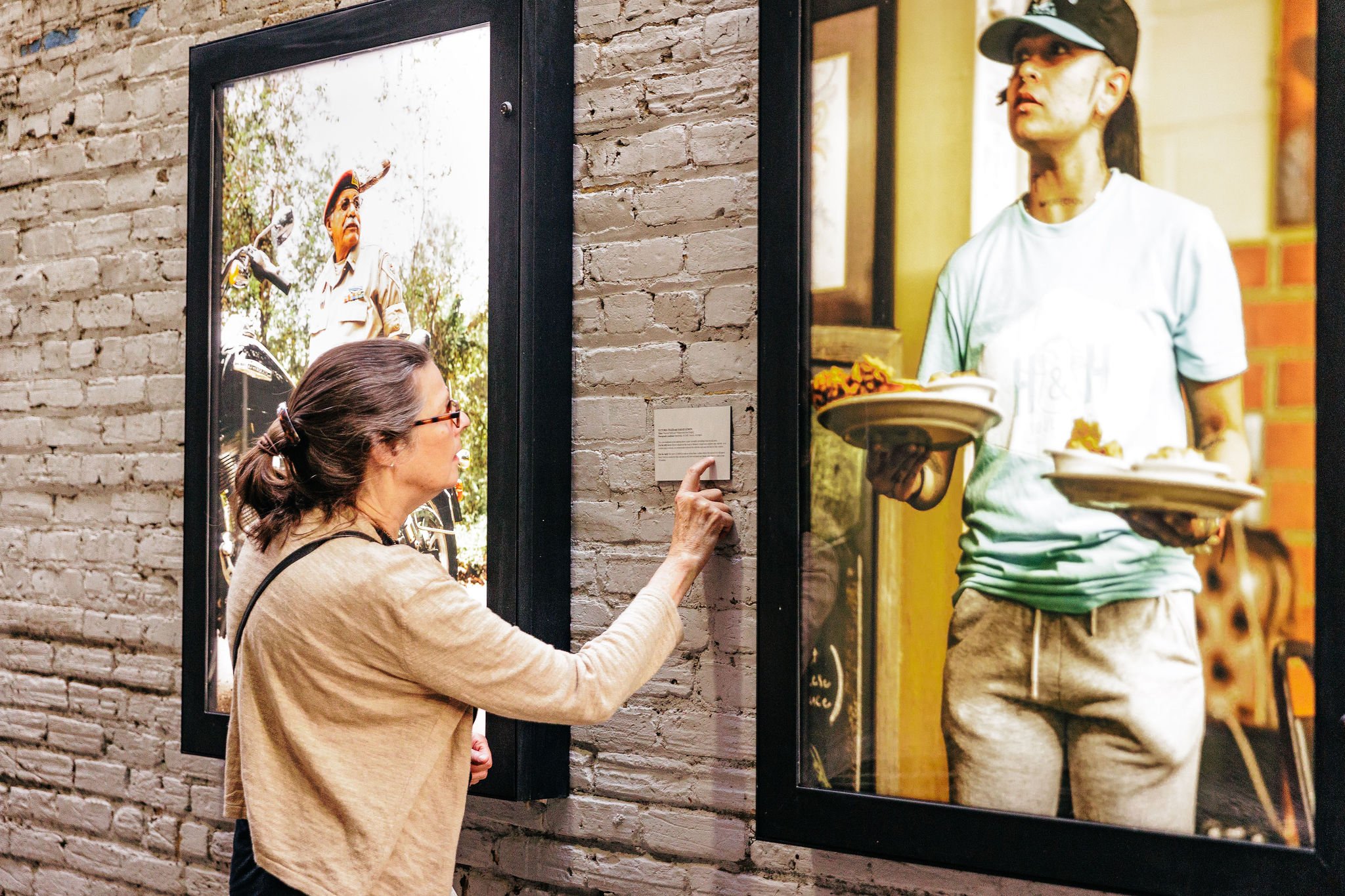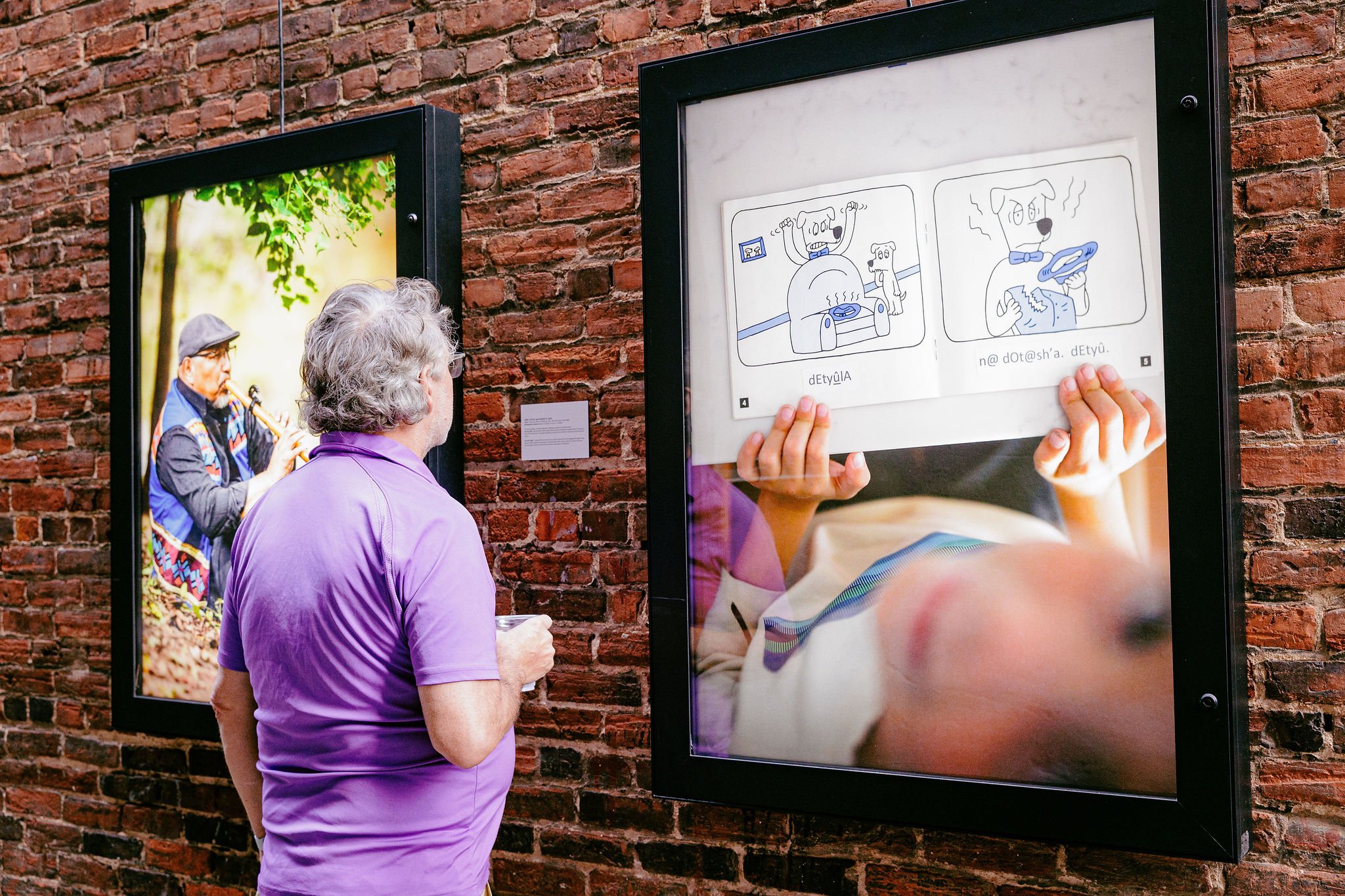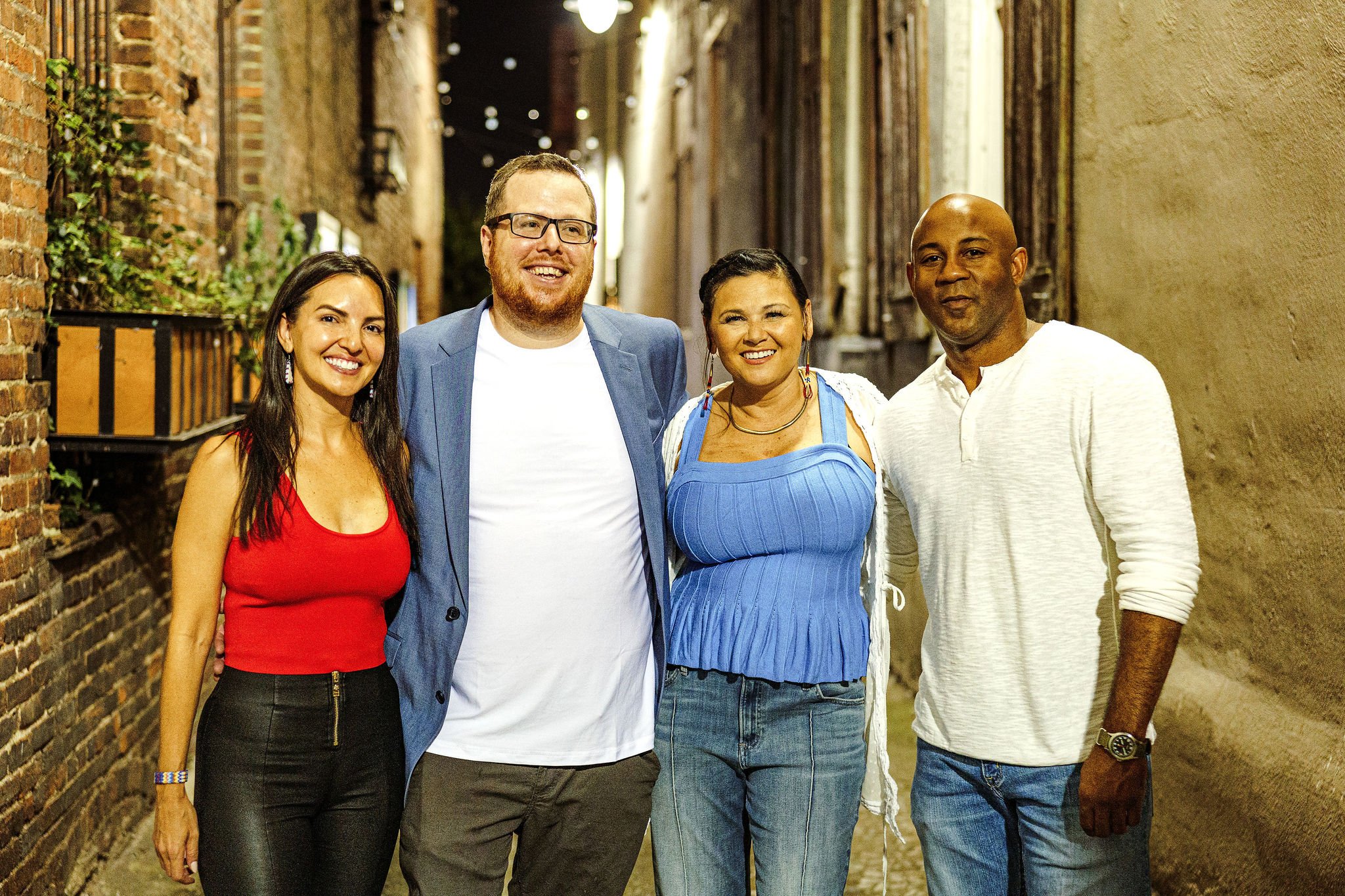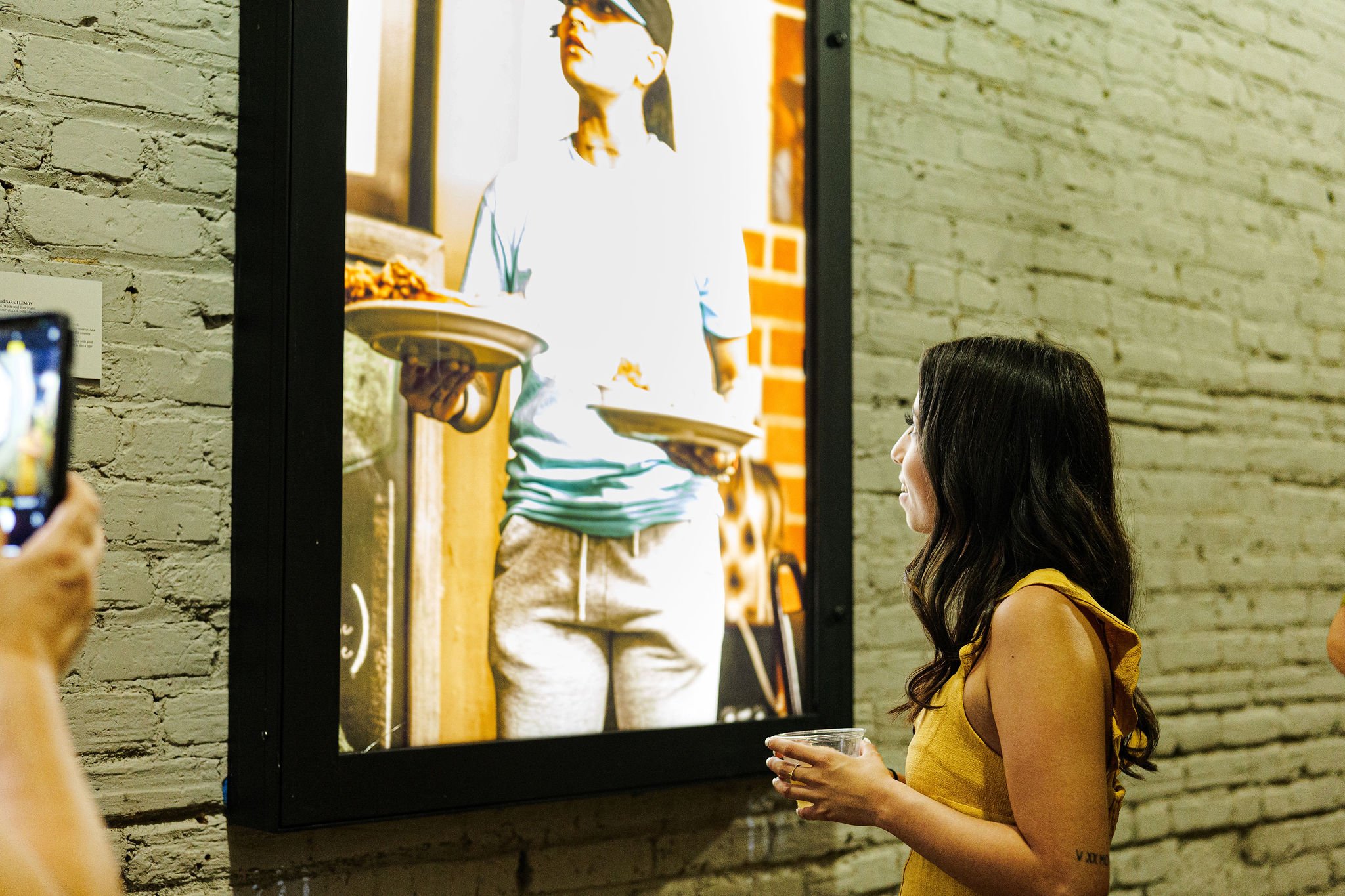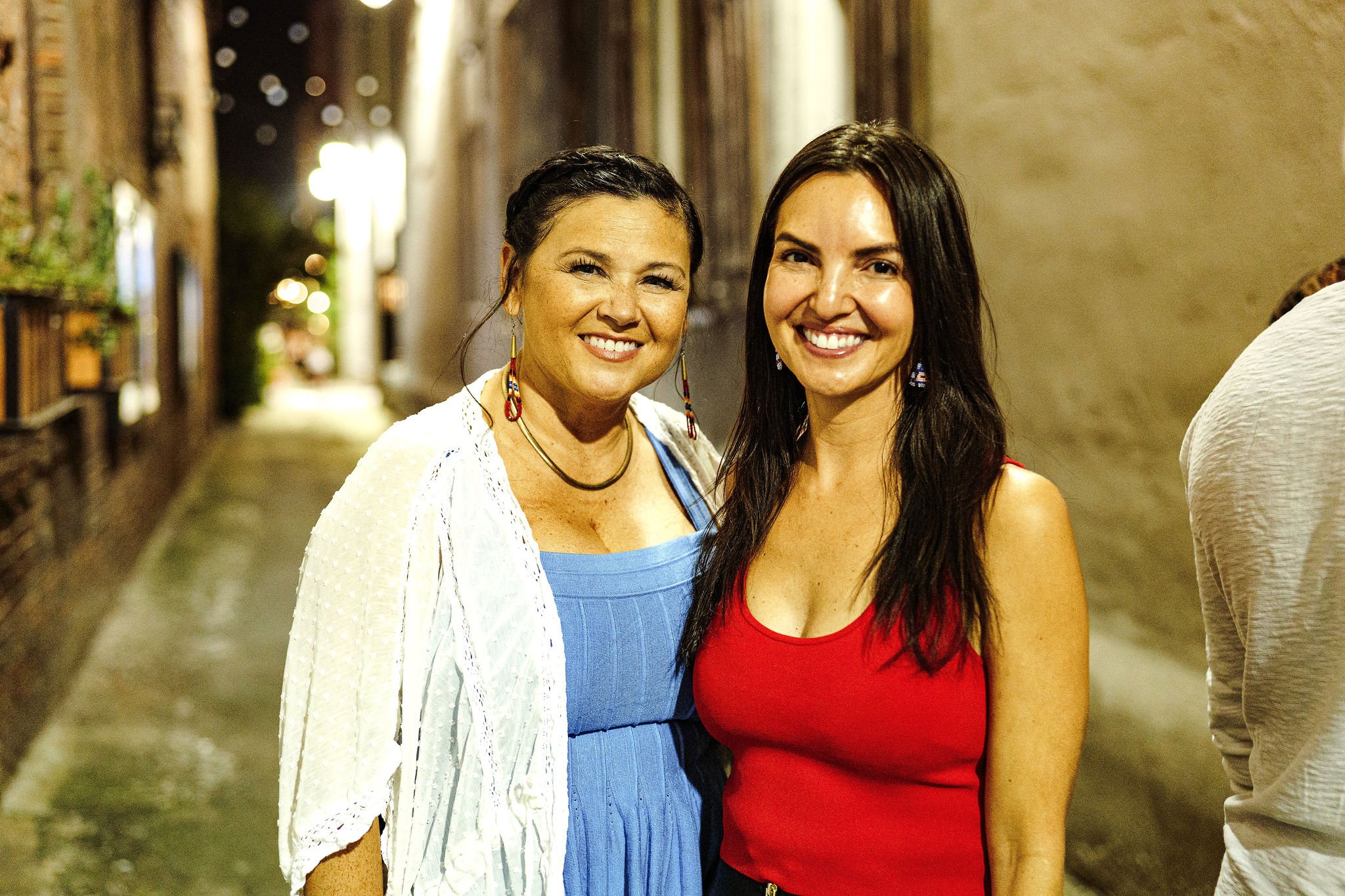Bright City: Fanning the Flames
DOWNTOWN MACON, GA - 2ND STREET ALLEY
OCTOBER 6, 2023 - SEPTEMBER 26, 2024
c/o Crystal Alexis
An outdoor photography exhibit featuring the Macon & Muscogee Creek communities uniting in conversations on the past, present, & making way for the future.
Fanning the Flames is the fifth rendition of the Bright City initiative, presented by Dashboard in partnership with NewTown Macon and the Muscogee Creek Nation.
Building off the success of Rekindling the Fires, the previous exhibition providing Muscogee and Yuchi artists a platform to express their experiences of returning to the ancestral lands of Macon, Georgia, Fanning the Flames invited Rekindling artists Victoria Tiger and Harmony Apel back to collaborate with local Macon artists to further the dialogue surrounding Macon's culture, community, and history.
Featuring Diana Davenport, Harmony Apel, Matthew Odom, Mike Young, Sarah Lemon & Victoria Tiger, and curated by Tracie Revis of the Muscogee Creek Nation.
Press
Macon's outdoor exhibition 'Fanning the Flames' celebrates local culture and history through illuminated photography – WGXA News
Fanning the Flames – Macon Magazine
A Message from NewTown Macon: Fifth Edition of Bright City Initiative: "Fanning the Flames" Illuminates Macon's Unique Identity – Middle Georgia Times
Column: Bright City outdoor exhibit kicks off Friday in downtown Macon – The Macon Telegraph
Photos by Crystal Alexis
CURATORIAL STATEMENT
By Tracie Revis
In the bicentennial year, Macon has encouraged honest connections and conversations to its complex past. Fanning the Flames is an opportunity for Indigenous and Macon photographers to share a conversation through photographs. The four Macon photographers were paired with one of two Muscogee Creek photographers to create a theme and see where the conversation leads.
This project was an experiment in social change and public art. The participating photographers were asked to visit with their Muscogee mentor to capture an image that portrays what this past year of the indigenous history has meant to Macon. Upon completion, the photographers stated that they were forced to think “outside of the box” and think more about “celebration” of modern indigenous life rather than the stereotypical image of a posed portrait in front of the Ocmulgee Mounds. Some realized that they did not know enough about the Indigenous people to know how to capture what was significant or how they could relate.
However, seeing them beyond the landscape produced a more intimate experience. The final product was that we are more alike than different. The conversations represented in this exhibit showcase shared values and culture around food, healing, individual expression, education, fashion, family, and passion. In the words of one of our photographers, “This project brings forth the importance of community and inter-generational connection as a means of preservation of a culture and fulfilling the human experience. These connections...between elders and children nourish an evolving identity and transcend separation, location, and time.”
Mvto to those who pass through this exhibit to see us as your neighbors and friends and not just as historical people. We are still here, and we are still indigenous. As human people, we are more alike than different if we choose to see that we are all connected.
EXHIBITION BACKGROUND
Photography by Victoria Tiger
The descendants of the Muscogee and Yuchi people were removed from the Southeastern United States in the 1830s by the United States government. The people walked over 700 miles into Indian Territory which is modern day Oklahoma. When Muscogee and Yuchi people were forced to leave their homes, they took their tribal town ceremonial fires with them to Oklahoma. When arriving in Oklahoma, each town placed their fires where they still reside and enjoy their ceremonial dances and songs. However, not all tribal town fires still burn. Today, there are 16 of the original 45 tribal town fires that exist. While some tribal towns brought their fires, other tribal towns built churches predominately of the Baptist or Methodist faith. They set up their “Indian churches” similar to the ceremonial grounds, where they sing their hymns in either Muscogee or Yuchi language. The ancestors of these people make up the modern Muscogee (Creek) Nation whose capital city is in Okmulgee, Oklahoma.
The Ocmulgee River in Macon, Georgia is home to a capital city or Mother Ground, where the mounds still sit.


